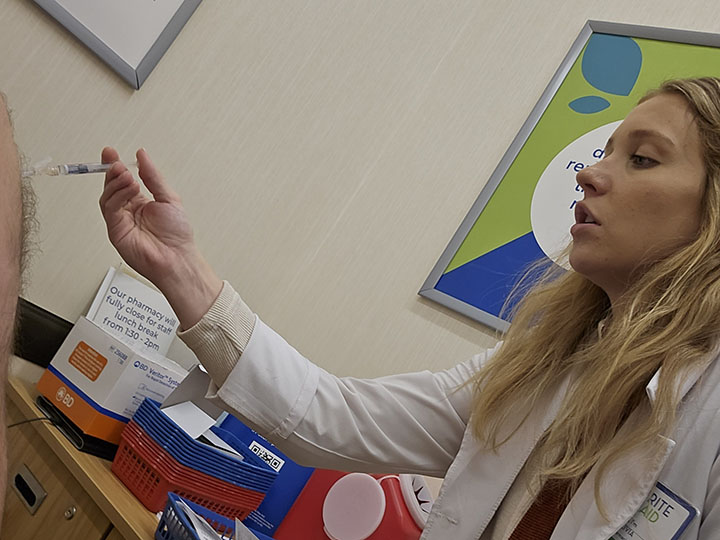Infection
COVID cases up in Northeast Michigan
News Photo by Mike Gonzalez
Rite Aid pharmacist Alivia McDonald administers a Moderna COVID-19 vaccine to a customer at the U.S.-23 South location on Wednesday.
ALPENA — Confirmed COVID-19 infections have increased within the past 40 days in Alpena, Montmorency, and Presque Isle counties.
State data shows Alpena County had 61 confirmed infections since Sept. 1, Montmorency County had 12, and Presque Isle County had 21.
In comparison to the previous 40 days, starting on July 23 and ending Aug. 31, Alpena County had 23 confirmed infections, Montmorency County had six, and Presque Isle County had four.
That means confirmed COVID-19 infections have increased by 265% in Alpena County, 200% in Montmorency County, and 525% in Presque Isle County.
Alpena County saw three confirmed infections for every two days since Sept. 1.
Alcona County saw a 40% decrease in cases within the past 40 days.
The state data includes only COVID-19 infections confirmed by health care facilities.
District Health Department No. 4 Health Education Specialist Cathy Goike said that, because of at-home COVID-19 tests, it is difficult to confirm how many total infections the area is seeing.
“It’s really hard to say,” Goike said. “Because these are stay-at-home tests, they don’t need to be reported if the results are positive. A lot of our at-home tests have been given out, and it’s hard to tell if there are a lot more cases or not.”
The U.S. Food and Drug Administration approved updated COVID-19 vaccines on Sept. 11. The U.S. Centers for Disease Control and Prevention recommends anyone 6 months old and older get the updated vaccine for the upcoming fall and winter seasons.
The vaccines, manufactured by Pfizer and Moderna, combat an omicron variant labeled XBB.1.5 and other variants on the rise.
In a Health Department meeting on Sept. 19, Dr. Josh Meyerson, medical director of the Health Department, said people may want to get the updated vaccine in consideration of those with whom they might be in contact.
“Most of us have some immunity and are less likely to get severe disease now, because we’ve been previously vaccinated or we’ve had previous infections, or — for many of us — both,” Meyerson said then. “You might say, ‘I don’t need it. I’m healthy, young, and my kids are fine.’ But you may have a loved one in a nursing home or a loved one that you bring Sunday dinners to. You don’t want to be the one who gave it to them.”

